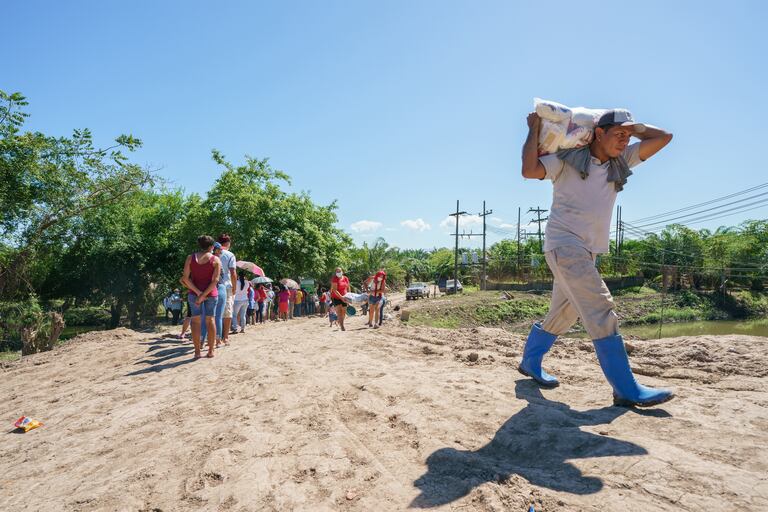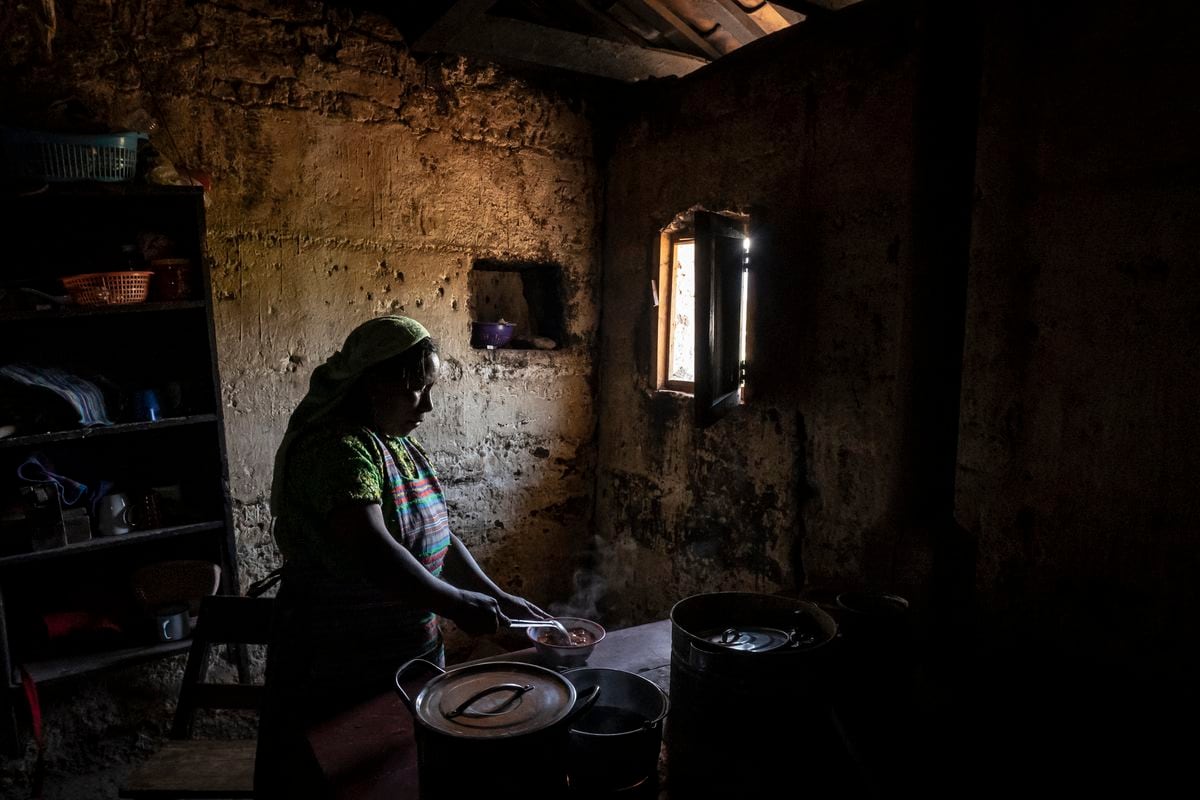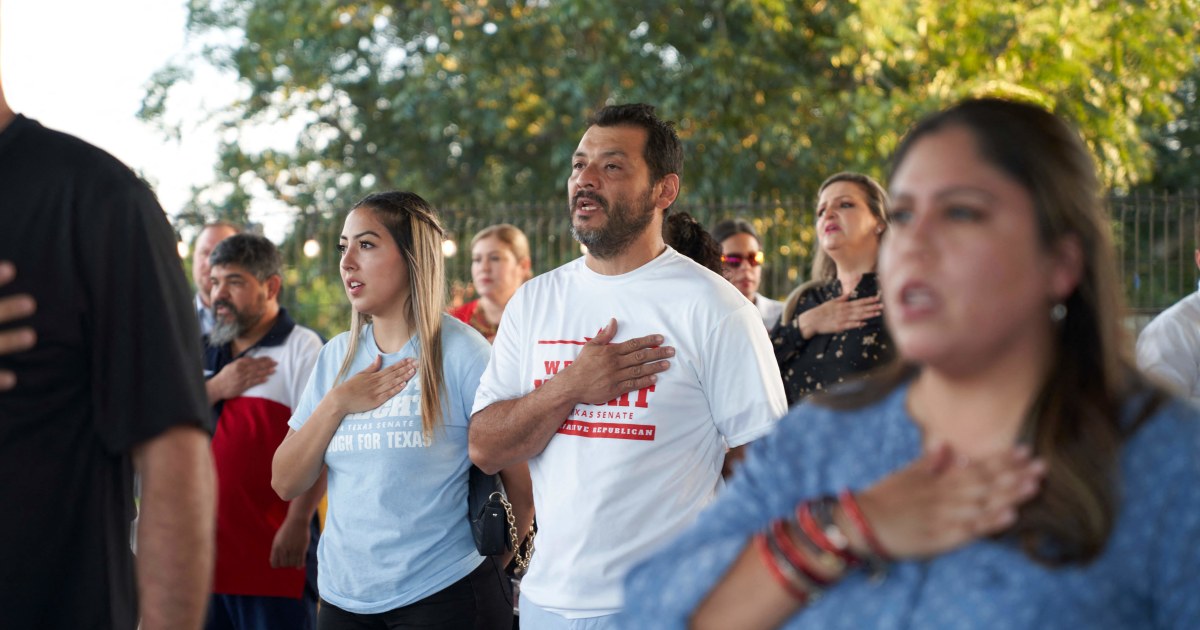A man carries a bag of humanitarian aid near Coloma, Honduras.GREGG BREKKE / ZUMA PRESS / CONTACTOPHOTO / Europa Press
The coronavirus pandemic makes it difficult to feed millions of people in Latin America.
The multiple economic ravages of the health crisis have had a devastating effect over the past year in a region known for its high levels of informality.
Even before covid-19 broke out, one in three people already lacked access to the food necessary for healthy development, and now three studies by Action Against Hunger in four countries - Colombia, Peru, Guatemala and Nicaragua - show that the situation has worsened amid shortages and mobility restrictions.
The phrase "we are more afraid of hunger than of covid-19"
It has become an outcry in Latin America, the NGO said Tuesday when presenting field investigations based on family surveys to the press.
“Without solid safety nets in the form of subsidies, the disease is a condemnation of hunger for those who lived daily in the informal economy, have lost their jobs due to movement restrictions or find increasingly expensive food in the markets, because of the commercial dynamics generated by the pandemic ”, says the organization.
More than 10 million people in the region faced severe food insecurity in 2020, a figure that tripled from 3.4 million in 2019. The X-ray is alarming.
About four million people currently have difficulties eating with minimal parameters of nutritional quantity and quality only in the so-called Central American dry corridor, which extends from Nicaragua to southern Mexico, warns Action Against Hunger.
The loss of crops that caused the passage of hurricanes Iota and Eta - which hit large areas of Nicaragua, Guatemala and Honduras last November - aggravates the situation.
"In this area we have interviewed a sample of 3,700 households, showing that 75% of the families say they do not have enough food, while perceiving a notable increase in the price of the same in the markets," explained Miguel García, director of the NGO in Central America.
Given the circumstances, state support programs "can prevent millions of people from falling into poverty, but the coverage of the incipient social protection networks in Central America is still very uneven," he said.
Several NGOs, with the support of the European Union, have set up an alternative food assistance network to support more than 50,000 people in rural communities in the corridor, which is often affected in times of drought.
In Peru, community kitchens generally run by women, known as
common pots,
have become an alternative to alleviate the ravages of the pandemic, but they are not without challenges.
For starters, these kitchens that have now served nearly 130,000 people could become a source of contagion.
Of the 200 families they interviewed in the Lima metropolitan area, eight out of ten saw their income reduced and three out of four faced food insecurity.
Venezuelan migrant families, who tend to face extremely high levels of informality in the countries where they have settled, have felt the blow harshly.
Their family income has dropped on average 33%.
"The reduction of iron in the diet, something essential to combat anemia, is especially worrying," emphasized América Arias, the director of Action Against Hunger in Peru.
The situation of migrants is also critical in neighboring Colombia, the main host country for the Venezuelan diaspora.
There, three out of every four consulted said they came from Venezuela.
98% of those surveyed stated that they could not meet their basic needs, and emphasized the overcrowding in which they live, as detailed in other recent reports.
"It is important to demolish the myths associated with humanitarian aid through monetary assistance," said John Orlando, the director of the NGO in Colombia, who described them as "a worthy alternative."
This mechanism allows families to choose what their most urgent needs are, as well as formally link to the local economy and also benefit host communities at a difficult time.
"The world also needs a recovery curve for hunger," wrote Olivier Longué, the general director of Action Against Hunger, in this newspaper last October.
“Like the economy, food needs incentives sometimes.
In the form, for example, of monetary transfers, a new form of aid that simplifies the logistics of distributions and feeds while recovering local economies.



/cloudfront-eu-central-1.images.arcpublishing.com/prisa/2C5HI6YHNFHDLJSBNWHOIAS2AE.jpeg)
/cloudfront-eu-central-1.images.arcpublishing.com/prisa/GSAG3AFDE5GZ7CR5RU42LT63UM.jpg)
/cloudfront-eu-central-1.images.arcpublishing.com/prisa/EMYXC3EVHNEG3OJHGIQCB2IVYA.jpg)
/cloudfront-eu-central-1.images.arcpublishing.com/prisa/W33JSXVPKRF7FMDYEETPSPNNKY.jpg)
/cloudfront-eu-central-1.images.arcpublishing.com/prisa/RHYRDMQQ7BG5JOUSKAXBLKE6YE.jpg)
/cloudfront-eu-central-1.images.arcpublishing.com/prisa/ZU5KUJFBSRGVVM2SXJTZBZP3XI.jpg)
